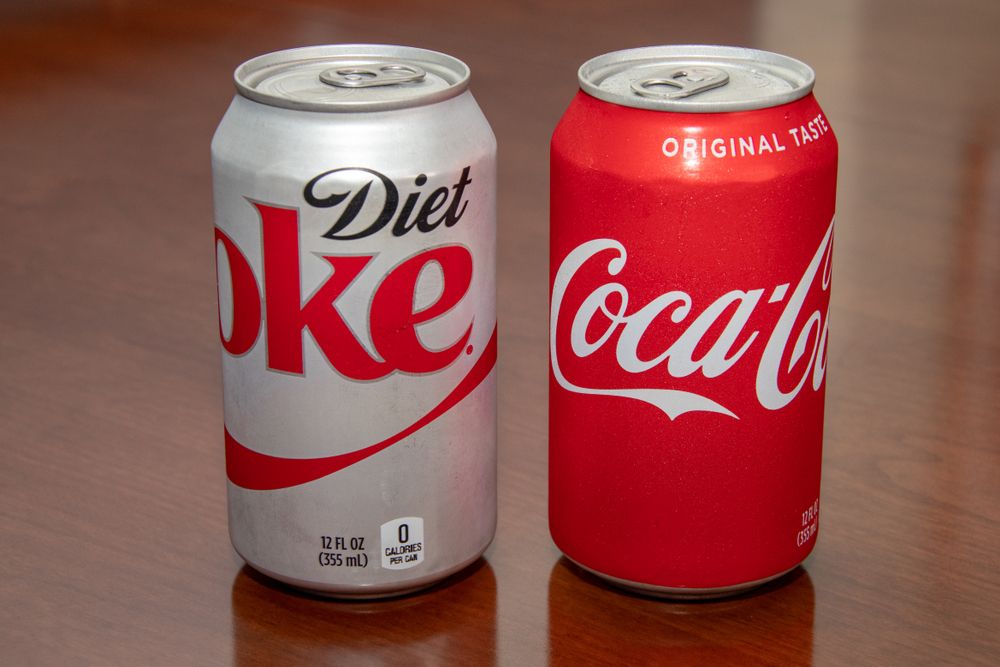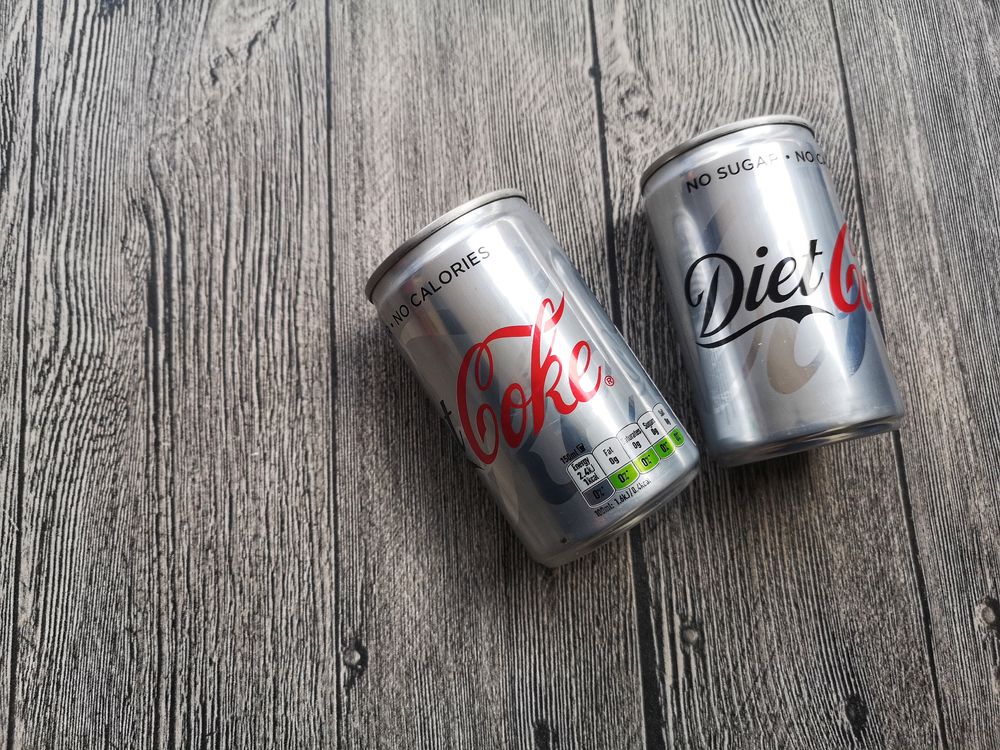
Coca-Cola is undeniably the most popular soda worldwide, according to the latest Statista report. While sugary soda sales haven’t fizzled out entirely, many people are opting for Diet Coke and Coke Zero Sugar to satisfy their thirst and sugar cravings.
These two sugar-free options offer the classic Coke flavor without the calories, but they’ve ignited debates among soda enthusiasts about which one is truly the best.
That’s why we decided to put these two popular diet sodas to the test, conducting a taste comparison and consulting two registered dietitians to evaluate their nutrition and ingredient profiles. Here’s everything you need to know about how Diet Coke and Coke Zero Sugar stack up.
The Backstory: How These Sodas Came to Be
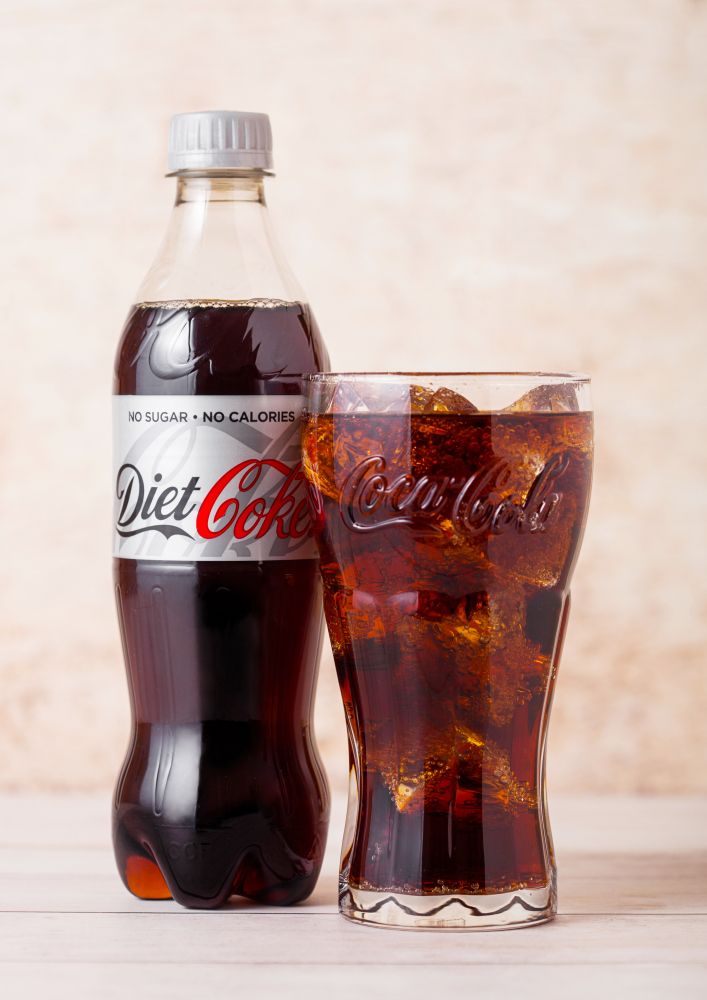
The original Coca-Cola was created by pharmacist John Stith Pemberton in 1886 in Atlanta, Georgia. By the 1960s, as the obesity epidemic began to emerge and diet culture gained momentum, consumers started seeking sugar-free alternatives, and Coca-Cola was due for a refresh.
The idea of a "diet" version of Coke circulated among executives for two decades until the brand finally introduced Diet Coke in the summer of 1982. According to Coca-Cola, it was marketed as a "great-tasting soft drink that happens to have one calorie," rather than simply as a diet beverage.
Just a year after its launch, Diet Coke became the top-selling diet soft drink in the U.S., and from 1984 to 2010, it held its position as the third most popular soft drink in the U.S., just behind Coca-Cola and Pepsi.
Despite Diet Coke’s success, Coca-Cola continued to innovate. In 2005, they launched Coca-Cola Zero, offering the familiar Coke taste without the sugar or calories. In 2017, the brand revamped the recipe, packaging, and name to what we now know as Coke Zero Sugar. A Coca-Cola press release touted the change, saying, "We've made the great taste of Coke Zero even better, and a lot like a Coke. It's delicious, refreshing, and our best-tasting zero-sugar Coca‑Cola yet."
Nutritional Comparison: Diet Coke vs. Coke Zero
Diet Coke
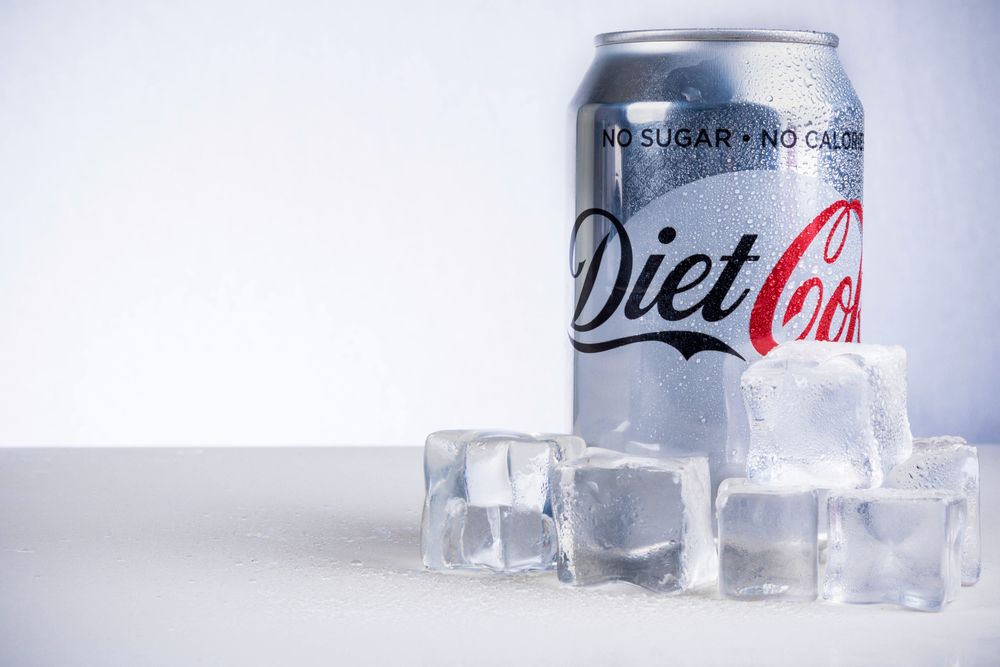
Nutrition (Per 12-oz can):
Calories: 0
Sodium: 40 mg (2% DV)
Carbs: 0 g (Sugar: 0 g)
Caffeine: 46 mg
Coke Zero Sugar
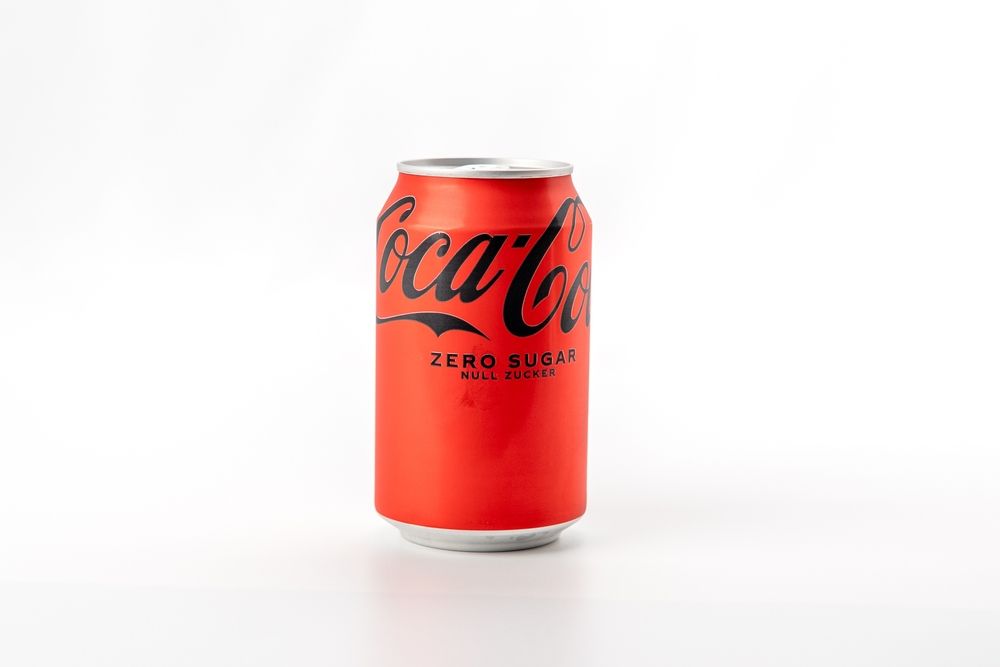
Nutrition (Per 12-oz can):
- Calories: 0
- Sodium: 40 mg (2% DV)
- Carbs: 0 g (Sugar: 0 g)
- Caffeine: 34 mg
At first glance, both Diet Coke and Coke Zero Sugar appear nutritionally identical, with minimal differences except for sodium. However, a deeper look reveals distinctions in their phosphorus and caffeine content.
Phosphorus Content
Colas typically contain phosphorus in the form of phosphoric acid. "In addition to being a preservative, phosphoric acid lowers the product's pH, enhancing flavor and maintaining carbonation," explains dietitian Michelle Rauch, MSc, RDN.
Diet Coke has 27 milligrams of phosphorus per serving, while Coke Zero Sugar contains 54 milligrams—double the amount.
Why does this matter? "Phosphorus and calcium have an inverse relationship," says Rauch. "Excessive phosphorus can reduce calcium levels in the body, potentially leading to bone loss over time. It can also interfere with the absorption of other essential minerals like iron, zinc, and magnesium."
Those with kidney disease, individuals on hemodialysis, and people at risk for osteoporosis should be especially cautious about their phosphorus intake and may want to limit or avoid these sodas.
Caffeine Content
Both Diet Coke and Coke Zero Sugar contain caffeine unless you choose their caffeine-free versions. Diet Coke contains 46 milligrams of caffeine per 12-ounce can, while Coke Zero Sugar has 34 milligrams, meaning Diet Coke has over 30% more caffeine.
The FDA recommends limiting caffeine intake to no more than 400 milligrams per day, which equals roughly 12 cans of Coke Zero Sugar or 9 cans of Diet Coke.
Although 34 to 46 milligrams of caffeine is significantly less than a typical cup of coffee (which has about 90 to 100 milligrams), it’s still enough to keep you alert. So, you might want to skip these sodas in the evening to avoid disrupting your sleep.
Ingredient Comparison

The main difference between Diet Coke and Coke Zero Sugar lies in their artificial sweetener blends. While both sodas use aspartame, Coke Zero Sugar also includes acesulfame potassium (Ace-K).
Acesulfame Potassium
Acesulfame potassium is a zero-calorie, non-nutritive sweetener that is 120-200 times sweeter than table sugar. Because of its intense sweetness, it’s used in very small amounts and is often combined with other sweeteners to closely mimic the taste of sugar, according to Lisa Andrews, MEd, RD, LD, owner of Sound Bites Nutrition in Cincinnati, Ohio.
The FDA considers acesulfame potassium safe within an acceptable daily intake (ADI) of 15 milligrams per kilogram of body weight, which translates to roughly 23 packets of sweetener or about 5-6 cans of diet soda per day.
Aspartame
Aspartame, another non-nutritive sweetener, is made from the amino acids aspartic acid and phenylalanine, both naturally found in food and the body. Andrews explains that phenylalanine is slightly altered in aspartame to create its sweet taste.
The FDA’s ADI for aspartame is higher than for Ace-K, at 50 milligrams per kilogram of body weight, which equates to around 18-19 cans of diet soda for a 150-pound person.
Safety and Potential Risks
Both sweeteners are generally considered safe in moderation, but some studies have raised concerns.
A 2022 review in Nutrients suggested that high intake of artificial sweeteners may impact gut microbiota, potentially affecting appetite, digestion, and the risk of metabolic conditions like cardiovascular disease and obesity.
For individuals with diabetes, a 2023 study found a higher risk of colorectal and stomach cancer associated with aspartame consumption, although no link was found between artificial sweeteners and cancer in the general population. These findings are based on a small number of cases, and Andrews notes that "more research is needed to confirm this."
Excessive use of acesulfame potassium has also raised concerns, with a 2024 study suggesting it may increase the risk of early puberty in adolescent girls. Additionally, a 2022 French cohort study linked high consumption of both sweeteners to an increased cancer risk.
"Artificial sweeteners appear to pose more risks for individuals with diabetes," Andrews explains, citing a study that found a connection between sweeteners and liver cancer risk.
Pregnant women should avoid aspartame due to the risk of phenylketonuria (PKU), a condition that prevents the body from breaking down phenylalanine.
Final Thoughts on Artificial Sweeteners
Despite mixed research on the health effects of artificial sweeteners, and the limitations of some studies that rely on diet recall data, "the FDA recently reaffirmed that non-nutritive sweeteners are safe when consumed in moderation," says Andrews.
Taste Test: Diet Coke vs. Coke Zero vs. Original Coke
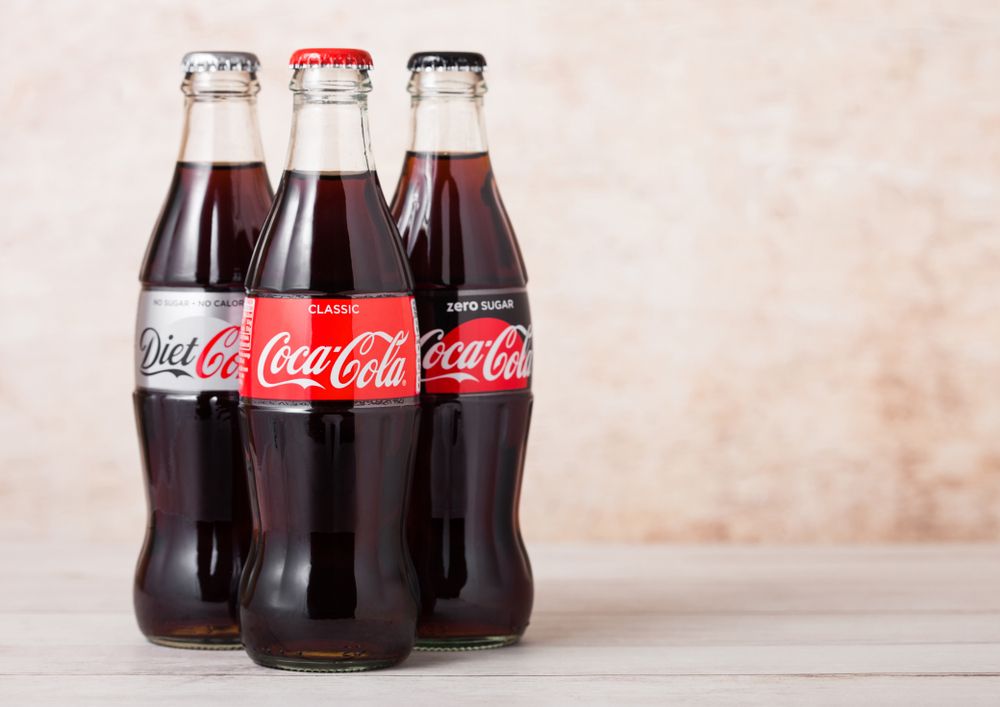
No Coke comparison would be complete without a taste test, so we grabbed bottles of Diet Coke, Coke Zero Sugar, and original Coca-Cola to see how they measure up against each other.
Original Coca-Cola
The original Coke has a signature, distinct flavor that’s almost metallic—exactly what we think of when we picture Coke. Its bright sweetness with caramel notes lingers after every sip, giving it a taste that’s hard to replicate. It’s no surprise that it continues to set the bar for other sodas.
Diet Coke
Next up, we tried Diet Coke. One sip in, and we weren’t eager for more. It lacks that classic Coke flavor, tasting more like a watered-down version of the original or a knock-off. The flavor fades quickly, forcing you to keep sipping, but the mineral finish and artificial aftertaste that clings to your tongue make that hard to enjoy. Safe to say, Diet Coke didn’t win us over.
Coke Zero Sugar
Upon the first sip, we were surprised at how closely Coke Zero Sugar resembles the original. It’s fizzier than Diet Coke and has a richer, more complex flavor profile without the unpleasant mineral finish. However, after a few sips, it started to taste slightly sweeter than the original, almost as if Coke Zero Sugar is trying too hard to match the flavor of classic Coke. Some people, particularly those not used to artificial sweeteners, might find it a bit too sweet. Still, it’s far more enjoyable than Diet Coke and a solid choice for those seeking a sugar-free option.
Diet Coke vs. Coke Zero Sugar: Which Tastes Better?
After trying all three, it’s clear each has its own flavor profile. Original Coca-Cola remains iconic with its bright sweetness and caramel notes. Diet Coke, however, disappoints with its diluted taste and lingering artificial aftertaste, making it the least appealing.
Coke Zero Sugar, on the other hand, closely mimics the original, offering a richer, more satisfying flavor without the harsh finish of Diet Coke. While it may taste slightly sweeter than Coca-Cola, it’s still the best sugar-free alternative. Overall, Coke Zero Sugar emerges as the winner among the diet options.
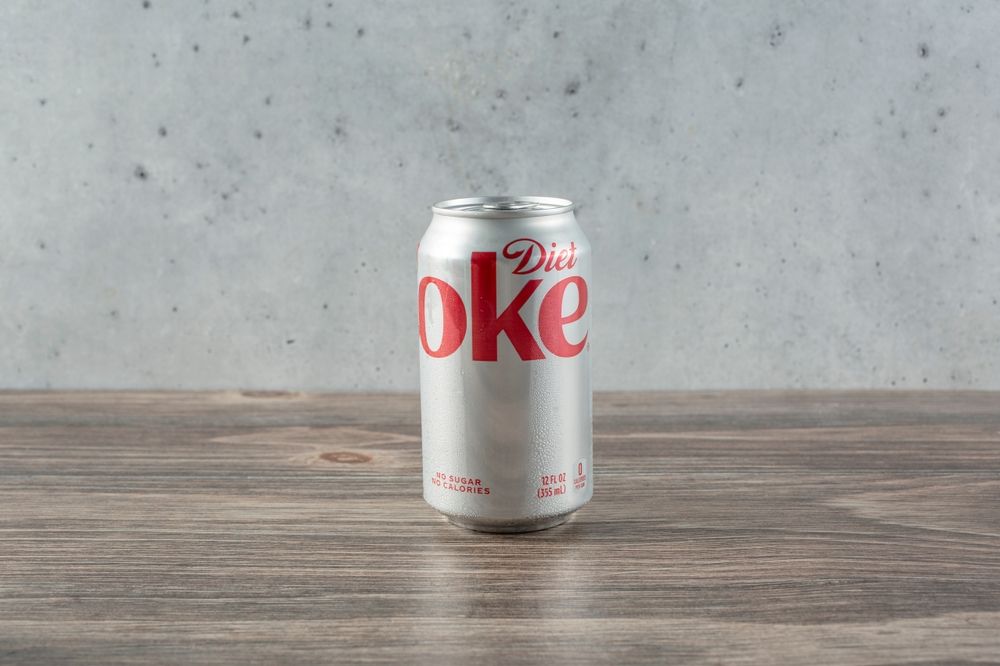
All things considered, it's clear that neither Diet Coke nor Coke Zero Sugar is healthier than the other.
“A few diet sodas per day won’t make or break your health,” says Andrews. However, drinking regular Coke daily could. A single can of regular Coke contains 39 grams of added sugar, surpassing the American Heart Association’s recommended daily limit.
That said, it’s important to recognize that neither Coke Zero Sugar nor Diet Coke is a “healthy” choice. Both contain artificial sweeteners, which may carry potential health risks for some individuals. As Andrews notes, it’s about “picking your poison” based on taste preference.
Based on our taste test, Coke Zero Sugar is the clear winner. While it’s noticeably sweeter than original Coke, it retains the richness and complexity of flavor, far surpassing Diet Coke.
The Bottom Line
If you regularly drink sugar-sweetened Coke, both Rauch and Andrews recommend switching to Coke Zero Sugar or Diet Coke to lower your sugar intake. "There are clearly more documented health hazards with sugary beverages than with diet drinks sweetened with artificial sweeteners," says Andrews.
However, if you’re not a frequent soda drinker, it’s best to avoid making diet sodas a habit. “An occasional Diet Coke or Coke Zero Sugar won’t harm you, but if you’re drinking one or more daily, it would be beneficial to replace them with other low- or no-calorie beverages like water (flavored with fruit slices), naturally flavored sparkling water, or unsweetened iced tea,” suggests Rauch.

